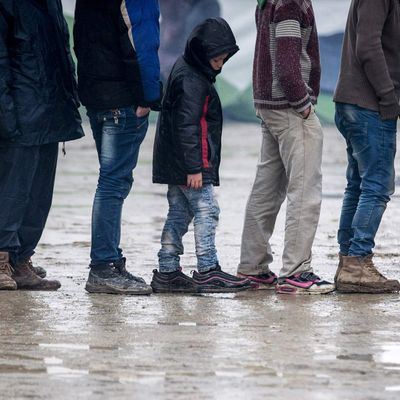
The ongoing refugee crisis has stretched many European countries to their limits — so much so that some are beginning to question how many refugees they can feasibly take in. By February, more than 76,000 people had risked crossing to Europe so far this year, and the influx shows no signs of slowing. What’s more, a new study published in BMJ (formerly the British Medical Journal) suggests that host countries might need to take refugees’ mental health into consideration just as much as their physical presence and well-being. According to the study, which compared the mental health of refugees to that of Swedish-born citizens, refugees fleeing a war zone are 3.6 times more likely to develop psychotic disorders.
To reach this conclusion, researchers gathered public mental-health data for more than 1 million people born in Sweden to Swedish-born parents. They also examined records for refugees and non-refugee migrants, excluding undocumented migrants or people with a pending asylum decision. They then compared the prevalence of a ICD-10 clinical diagnosis, which includes schizophrenia and all other psychotic disorders that aren’t related to moods or emotions, in all three populations.
Taking into account age, sex, income, and urban versus rural residency of both Swedish citizens and migrants, researchers found not only that refugees are more likely to develop a psychotic disorder than Swedes, but that they’re also 66 percent more likely to do so than non-refugee migrants from the same regions of origin. According to Mother Jones, last year Sweden took in 32,600 refugees, which means 41 will likely develop a psychotic disorder at some point.
James Kirkbride, a co-author of the study and a senior research fellow in the Division of Psychiatry at University College London, told Mother Jones that although data on children is limited, people who migrate earlier in life might be even more likely to develop a psychotic disorder. To Kirkbride, such evidence makes a compelling case for countries to provide counseling and other mental-health services to people fleeing war zones. “If you subscribe to the view that we have a moral duty to care for those we accept in our countries as refugees, this should extend to providing appropriate mental healthcare,” he said. “The burden of mental health disorders which occur in already vulnerable populations is an important humanitarian issue.”




